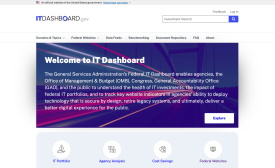The General Services Administration updated Social Media Navigator, its official guide to the use of social media. The guide provides information to enhance collaboration and information exchange using such tools as agency blogs, Flickr, Facebook, YouTube, and blip.tv.
From the guide, recommendations on engaging in online conversations (full guide below):
It’s a Smart Idea to Engage Regularly and Respond Quickly
In social media, conversations take place over minutes or hours, not weeks or months. If you decide to engage in conversation using social media, be sure that you are able to respond quickly and with all the facts. Even if your reaction is “we can’t provide an answer yet,” providing some response quickly is part of the excellent customer service all citizens should receive when talking to a GSA employee. If you host a blog, be sure you dedicate the resources needed to provide new content on a regular basis.
Don’t Be Afraid to Ask For Input When You Need It
It’s great to involve citizens in the governing process by asking for ideas or input. Before you do, make sure you’re asking about an issue where you can actually be responsive to outside suggestions. For example, you may want to ask whether your visitors would find a new website feature helpful, but you would avoid asking whether another Agency’s website should be redesigned. Citizens expect us to operate Government effectively, and part of doing that is asking for feedback when appropriate.
Try to Be as Transparent as Possible
It’s great to share as much useful information as you reasonably can, so that citizens understand what their Government is doing and why. However, every day, GSA employees are trusted with information that isn’t appropriate for sharing with the public, such as the status of an ongoing procurement or negotiations over a building lease. If you’re unsure whether something can be shared, talk to your supervisor or security manager.
Remember to Engage for Accuracy, not Argument
Because of the many important issues GSA handles, there’s a lot of conversation about us online. (For example, head to Twitter.com and search for “General Services Administration” to see what people are saying about us right now!) If you see misrepresentations made about GSA in social media, you can certainly use your social media site or someone else’s to point out the error and provide correct facts. Make sure your position is factual, and not disparaging or argumentative in tone.
Don’t Hesitate to Admit Mistakes Quickly
Part of honestly engaging with citizens is admitting when you’ve made an error. If you make an error, be upfront about the mistake and correct it quickly. If you choose to modify something you said earlier, make clear what you are modifying, and make it clear that you have done so (e.g. by using strikethru strikethrough text). Nobody expects you to never make a mistake; we do expect you to be honest and upfront about it when you do.
A Good Rule of Thumb About Social Media Communication
Say to citizens on social media only that which you would say on the phone or in other official communications. There are always consequences to what you write.






